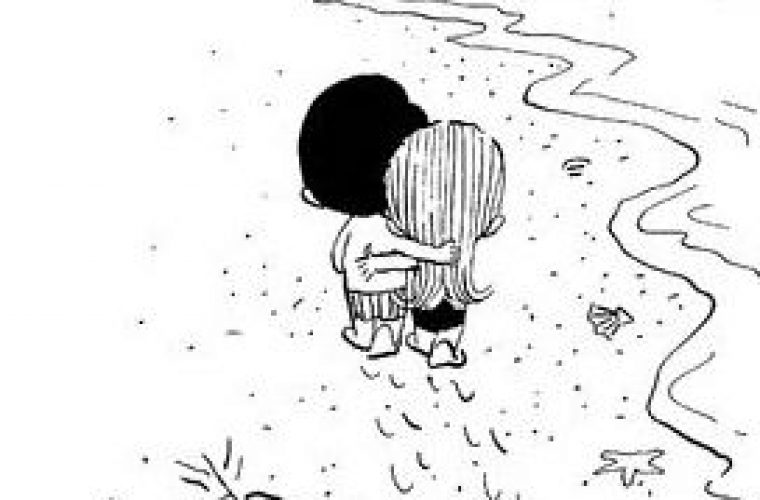When I was a child there was a comic strip series that used to appear in a local newspaper. The strip was called Love is… and would depict a series of love notes written by the cartoonist Kim Casali to her husband, Roberto Casali. The strip hit my radar sometime in the late 1970’s during early puberty when the notion of love beyond my mother was starting to blossom. Love Story was in the cinemas and the strip hit full stride with “Love is… never having to say you’re sorry.” The first adolescence that presents as puberty is a time where we move away from our family of origin to explore the world and in doing so we are more exposed to people whose values, beliefs, history and culture are quite different to our own. It is these differences that ultimately assure we will not mate with a close relative but with someone who has enough genetic diversity for us to create healthy children.
Years later, now as a coach, therapist and confidante to many who have traversed the painful side of life and love, I have reached a deeper understanding of what Love is. To truly love someone you must be willing to accept their fate too.
In the deep, simple truth of this kind of love we remove the outmoded pitfalls of partnership, marriage and relationship that once centred on wanting the other person to change, be more like us and less like who they really are.
We are all familiar with the experience of having people who we love but wish they would be happier, quit drugs, drink less, be more affectionate, communicative, in touch with their feminine side, more assertive, independent, patient and devoid of destructive behaviour patterns. We hope, often in vain, that they will realise the error of their ways, acknowledge they are wrong, start to believe that they are worthy of something better, be more religious, less spiritual, or less religious and more spiritual, change their life, wake up or just do whatever it takes to be better.
It is a very appealing and seemingly innocent desire to want the best for someone else, to make it so that their life fit more conveniently in with our perception of a conventional and sustainable life. The reality is, life is not an Instagram moment, it is not about the best bits, the filtered, photoshopped digital snap that we choose to share publicly. Life is so much more than that, life is messy and life is messy because love is messy, painful and will challenge us to the very core of our being.
I am reminded that ‘love is never having to say you are sorry’ is rooted in something deeper; love is never having to apologise for who we are, where we come from or where we are going. This kind of self acceptance has a profound healing affect. All the more so when those we love can hold us in this place of compassionate acceptance as we move through life’s challenges and struggles.
“You truly love someone when you love their fate.” – Zita
Expecting the other person to change is at odds with loving them and accepting them. Acceptance is what allows another person to heal and grow. If you can’t accept them or you feel a need to change their fate, then there is a part of them that you are not willing to accept. In effect you are saying; “I know better than you, what is best for you.” Such an idea is dangerous not least of all because it assumes a certain kind of superiority.
The truth is we don’t really know what is better for another person because we can only know our own experience and what is better for ourselves. How can we possibly know the solution to another persons problem, if firstly, we feel a need to change it and secondly, we don’t even really know what it is to live with that particular fate or challenge. Nor do we know the potential benefits that come with the challenge of that fate. Fate includes; gender, race, culture, parents, traumas and much more. And what makes a person’s fate unique is that it is infinitely different from yours. Even siblings enter a family at a different time in the family history and so their fate is also unique. If we struggle to accept the fate of our partner we will struggle to accept the children we create with them and the effect of that on children itself becomes a challenging fate we hope others will love and accept them for.
As a solutions focussed coach I accept the fate of clients and support them to do the same for themselves. In a safe space of compassion and non-judgement I am able to support them to find solutions that are appropriate for them and the systems to which they are inextricably bound. When people are accepted, they are able to maintain their dignity, their strength and sense of self and it is this that propels them toward what they need.
In my experience, we must each tend to our own needs. If someone’s pain troubles us rather than seek to fix them it may be wise to ask what about this really troubles me, what trauma of my own does this touch? What other people need is always far deeper and more complex than what we want for them. If we resolve our own inner conflicts first it becomes much easier to see and understand this. Our capacity for success in Love is our personal growth.


